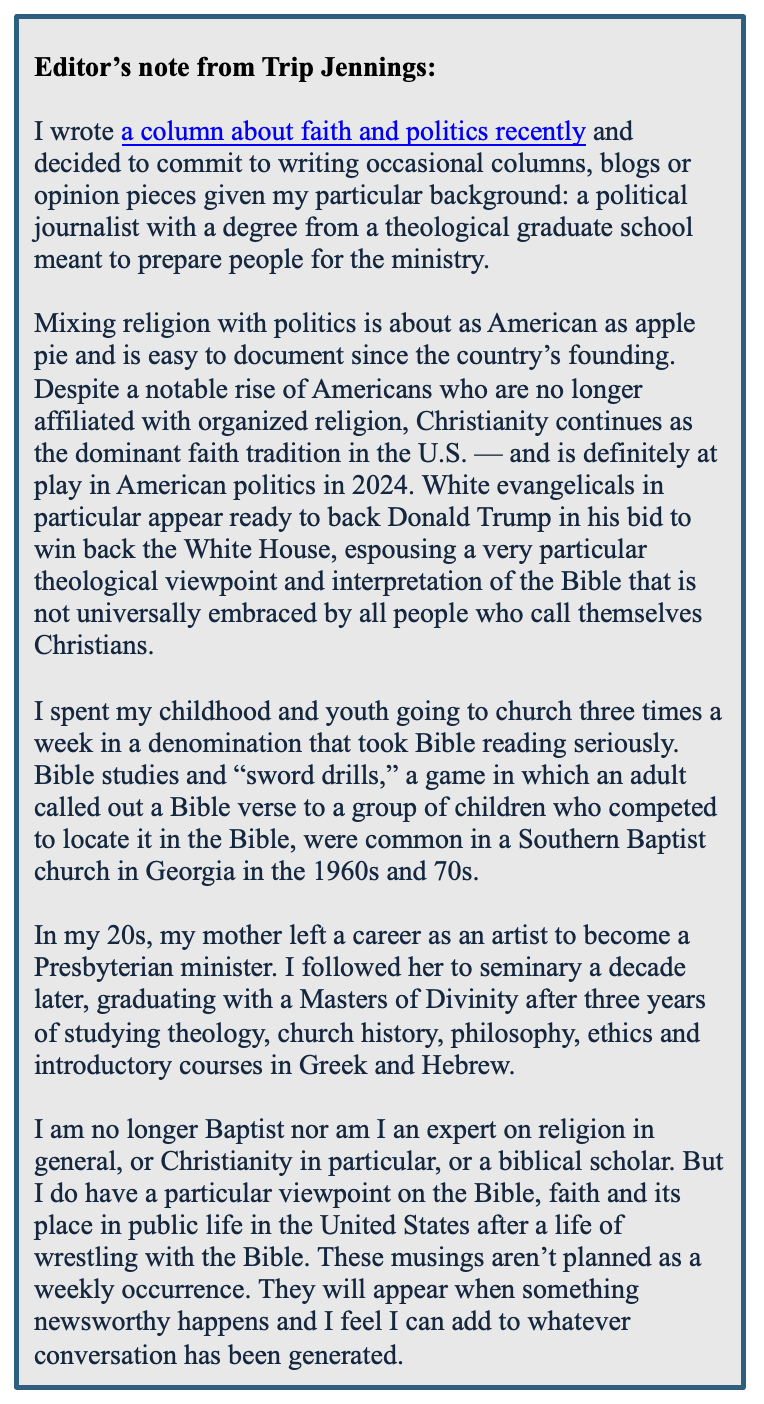A couple of weeks ago a writer at the Federalist blog faulted Dolly Parton for ascribing her loving attitude toward all her fans, including her LBGTQ+ ones, to her Christian faith.
I am not going to defend Dolly Parton here. She doesn’t need me to. The legendary songwriter and performer has conquered a brutally competitive, male-dominated industry over a 50-year career and can take care of herself. And the writer has since lamented targeting the immensely popular singer to make her point after legions of Dolly’s fans protested her column.

What interests me is the point the writer is trying to make and where she derives her moral authority to make such a bold statement.
The essay’s headline gives away the writer’s point of view: There’s Nothing Loving About Dolly Parton’s False Gospel.
Passages from the essay explain why the writer considers a loving attitude without judgment a false gospel.
“… Parton’s version of love, which includes condoning immoral sexual behavior (“be who you are,” she’s said), is unaligned with God’s vision for humanity.”
Later, the writer pinpoints what gives her the moral authority to say what she does:
“… calling sin out by name isn’t judgment. It’s adhering to Scripture.”
This last line made me chuckle.

I am not making fun of scripture, which is code for the Bible, the sacred text of Christianity. I’m laughing at the writer’s implication that there is only one way to read the Bible and that she is reading it correctly.
What the writer is not saying out loud is that her opinion comes from her particular interpretation of the Bible and the theological doctrines that infuse that interpretation.
It is important to acknowledge that no one reads the Bible as if they and only they have a hotline to God. Everyone reads the Bible through an interpretative lens — a point of view that is influenced by how a particular faith community taught them to read the Bible and how that interpretation interacts with the beliefs that the community uses to help guide it in faithful living. The society in which people live and the cultural issues that are debated also play a role in shaping a person’s interpretation.
In other words, the writer’s reading of scripture is not absolute truth but is a very human construct by a very particular faith community.When someone tells me otherwise, that they and they alone possess absolute truth and if I just believed as they did the scripture would all make sense, my immediate reaction, perhaps unfair, is they haven’t spent much time taking the messiness of the Bible seriously.
To those who don’t know much about the Bible or who are casually interested, the Bible is a very large book. The particular Bible my parents gave me for Christmas 1991 — it is inscribed from “Mom and Dad” — is 1,151 pages with 66 books — 39 in the Hebrew Bible / Old Testament and 27 in the New Testament.
By at least one count, there are more than 31,000 verses in the Bible. Meanwhile, a review of various analyses puts the number of Bible verses mentioning homosexuality as a sin as infinitesimally few, perhaps several dozen, or a thousandth of 1%
The essay writer might say she believes in the inerrancy of the Bible, that it is incapable of being wrong. But to believe that would require a fluency with ancient Hebrew and Greek and Aramaic — the languages in which the Bible was written and the language Jesus likely spoke — and to understand the norms as well as the contested ideas in these ancient communities that led to biblical prohibitions and rules. Even then, we can’t be certain that our interpretations would be correct.
The reality is that the Bible contains a range of human behaviors that implicates all of us. More than that, some of the rules are foreign to our thoroughly modern sensibilities.
For example, in Leviticus, the third book in the Hebrew Bible / Old Testament most associated with the prohibition against same-sex relationships, one learns that a person who curses his mother or father is supposed to be put to death.
A few chapters after the admonition against a man lying with a man in Leviticus, an entire chapter is dedicated to economics — the so-called Jubilee Year, which occurs every 50 years. One might interpret this section as counter to private property – which is fundamental to our way-of-life.
One of the rules of Jubilee year is that property that is sold to a purchaser should be returned to the original owner, meaning the land is never to be sold in perpetuity as a reminder that the land is God’s.
Leviticus also has a point of view on immigration, saying if a foreigner comes among you, you should treat them as a “citizen among you” — this is how the Hebrew is translated in the New Revised Standard Version Bible, which is the Bible that I have — and that foreigners should be treated as neighbors.
The Bible — in both the Hebrew Bible / Old Testament and New Testament — spends much more time talking about taking care of the widow, the orphan and the poor.
To my knowledge, in the New Testament, Jesus never prohibited same-sex relations but in Matthew 25, he does use explicit descriptions to say who will inherit the kingdom of God — those who feed the hungry, give drink to the thirsty, clothe the naked, welcome the stranger, care for the sick and visit the prisoner.
Given my decades of struggling with the Bible and all that it says — and it says a great many things, including a passage in the book of First Samuel where Israel’s first king, Saul, loses God’s favor for not slaughtering every single person among the Amalekites, an enemy of the ancient Israelites — my question is why people single out sexual morality among certain people and not others.
The simple answer is that’s because of the way they interpret the Bible and the various doctrines they adhere to, just as I have my own biblical interpretation and the doctrines that are foundational to my own faith journey.
Personally, I focus more on the verses and passages — including from Jesus himself — that connect loving God to loving your neighbor. Of course, we all must define who our neighbor is, don’t we?
I choose to define my neighbor broadly, by which I mean I interpret all human beings as neighbors. Not that I’m always a good neighbor or a model of neighborliness. I struggle every day with trying to live out the kind of life I believe I am called to live.
I do not begrudge the author of the Federalist essay the right to believe what she does and to say what she did. However, I am curious who counts as her neighbor after reading her essay.